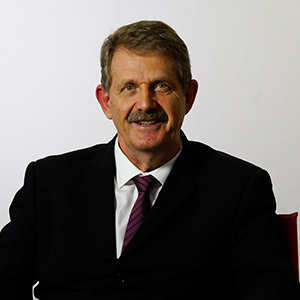
Greetings to everyone
It is once again an honour and privilege to update you about Council's first meeting of the 2023 academic year. Once again, we had a successful Council meeting on the Potchefstroom Campus and some members attended the meeting remotely.
Council expressed its deepest condolences to the family and friends of staff and students who passed away since the previous Council meeting in November 2022.
Council emphasised its appreciation for the memorial services which were conducted on all three campuses in October 2022. It is envisioned that these memorial services will be hosted annually.
Council noted that the 2023 academic year is well underway. We welcomed our 2023 first-year students during a successful Registration and Orientation programme. Although problems were experienced regarding the NSFAS funding allocations and clearances, we have managed to reach our enrolment target.
Council noted the good performance displayed by the NWU Eagles in the 2023 Varsity Cup thus far and continue to root for the team.
View my video message below.
The issues that our ordinary meeting of Thursday, 16 March 2023, dealt with are outlined below.
 |
On 15 March 2023, Council had an extremely productive workshop where the following matters were discussed comprehensively:
|
In addressing these, the university will be guided by the following principles: Growth, Unitary, Diversity, and Impact (GUDI). Management has already embarked on a consultative process with relevant stakeholders including NWU governance structures and staff regarding priority areas. The final strategy will be presented to Council during its June meeting.
|
|
|
Management, under the leadership of the principal and vice-chancellor, presented a report to Council highlighting the activities and achievements since the last Council meeting. The report focused on the strategy implementation for 2023 – a year of review, reflection, and new frontiers. It also highlighted progress on commitments made during the vice-chancellor's inauguration on 26 August 2022, including: | 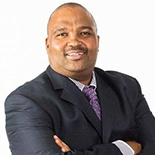 |
| |
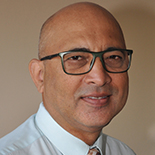 |
The first term of office of Prof Daryl Balia will come to an end on 31 December 2023. After following the necessary processes, Council decided to reappoint Prof Balia for another term of two years, ending in 2025. Council congratulates him on the sterling job done in his first term. We wish him well for his second term. |
|
The second term of office of Prof Mala Singh will come to an end on 31 December 2023. Council reappointed Prof Singh for a further term of one year. This implies that she has been reappointed for a subsequent term until 31 December 2024. Council is satisfied with the way in which this portfolio is managed. We wish Prof Mala success. | 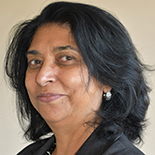 |
 |
The following policies were approved, and will shortly be available here:
|
|
Council approved the revised enrolment and efficiency targets for 2023 to 2025, as outlined by the Minister of Higher Education, Science and Innovation, Dr Blade Nzimande, in a circular from him dated 13 December 2022. The revised targets have already been included in the current Annual Performance Plan. |
 |
 |
Council took note that from a provincial government perspective, the matter had been included in the Mega Projects Plan of the North-West Provincial Government as well as the Provincial Growth and Development Strategy. Council further noted that the joint position paper had been prepared and would be submitted to the Premier of the North-West province for signature.
A meeting took place with the Minister of Health where it was agreed that a meeting with the Minister of Higher Education and Training, Science and Innovation will be convened.
|
| Council also noted that a committee was established to develop the base curriculum for the Medical School. The committee's primary role-players were from Nelson Mandela University, Stellenbosch University, Wits University, and the University of Cape Town. External curriculum experts from these institutions have been invited to serve on the committee. | |
| Council noted the efforts to enhance the environmental management programme within the NWU. This is an important area that ensures that the NWU attains and maintains a high level of compliance with environmental legislative requirements and good practices. Council noted a report with a baseline environmental-legal assessment and gap analysis on the NWU's compliance to relevant environmental law requirements. The report included the NWU's environmental action plan that aims to address the gaps. |  |
| Council noted the report and action plan and will monitor implementation progress.
| |
 |
Council noted that the budget that was approved by Council in November 2022 did not require any adjustments. The focus remains on ensuring financial stability in the medium to long-term. |
|
Council received an update regarding a workshop that was held with the senior management committee as well as student leaders. One of the main objectives of the transformation journey is to ensure that all role players have a common understanding about transformation and its impact on all NWU stakeholders. Council will be provided with a full report once all engagements have been finalised. | 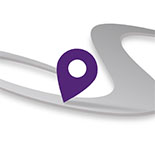 |
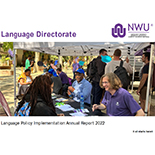 |
Council noted the report on the implementation of the language policy. The report can be viewed here. |
Once again, I thank all members of the university community for their support in ensuring that the NWU continues to succeed in many fields – locally and internationally.
I wish you the best for the rest of the year.
Best wishes
Bert Sorgdrager
Chairperson: NWU Council
|
For more information please contact Amanda van der Merwe. The next NWU Council meeting will be on 22 June 2023 on the Mahikeng Campus. |
